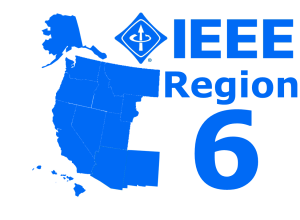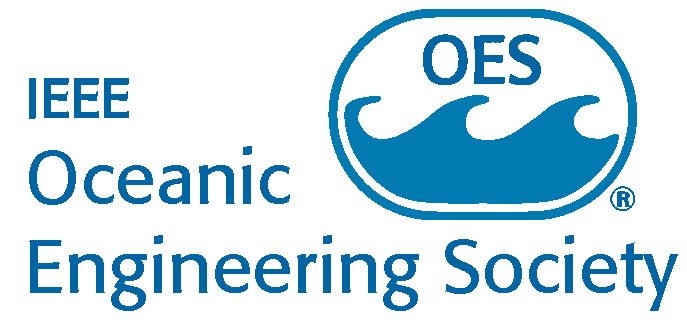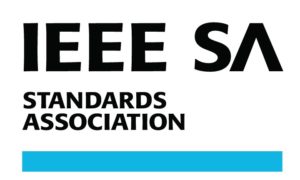- Home
- Archives
- Home-2023
- Program 2023
- Panels 2023
Panels 2023
SusTech 2023 Panels
All times and dates shown in Pacific Time (UTC-7)
Electricity Transmission Future
Organized by Oregon Department of Energy
Date & Time: April 20, 10:30 am
Venue: Multnomah Falls
Transmission line infrastructure is expanding across the U.S. and the world. Local, state, and national decarbonization policies; economics; and national security interests are driving an unprecedented demand for large-scale renewable electricity generation projects across the world – which in turn is driving the need to proactively plan and develop a vast expansion of bulk, high-voltage transmission networks to deliver renewables to load centers. This panel will discuss the history, current driving forces, benefits, and challenges of expanding transmission infrastructure in the context of the Pacific Northwest.
Organizer & Moderator: Jason Sierman, Oregon Department of Energy
Panelists:
- Ricky Bustamante, Bonneville Power Administration (BPA)
- Shaun Foster, Portland General Electric (PGE)
- Scott Beyer, PacifiCorp
- Adam Schultz, California Independent System Operator (CAISO)
Moderator Bio:
Jason Sierman is a Sr. Energy Policy Analyst with the Oregon Department of Energy. His areas of focus span a variety of power grid topics, such as utility power planning, transmission, storage, and offshore wind. Prior to his current role, he was an Energy Policy Analyst with the Department’s Siting Division that supports Oregon’s Energy Facility Siting Council. Jason has a B.S. in Civil & Environmental Engineering, an M.B.A., and a J.D. with a focus on Sustainable Environmental, Energy & Resources Law.
Panelist Bios:
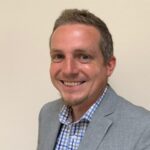 |
Scott Beyer is the Director of Transmission Expansion Planning at PacifiCorp, an electric utility operating 17,100 miles of high-voltage transmission lines across 10 western states and a diverse range of climate zones. In his role, Scott is responsible for planning the transmission system that serves PacifiCorp’s Washington, Oregon and Northern California customers to ensure new renewable resources can be delivered reliably and effectively to meet customer needs. Scott has approximately 15 years of experience in regional transmission planning roles at PacifiCorp and the Western Power Pool, and 20 years of experience overall in the electric power industry. |
| Richard Bustamante is the Manager of Transmission Planning at the Bonneville Power Administration in Portland, Oregon where he oversees BPA’s Transmission Reliability, Expansion, and Interconnection Planning. Richard has previous experience in Testing and Commissioning, Construction contract management, and Control and Protection design. Richard has a Bachelor’s degree in Electrical Engineering from Rice University. |
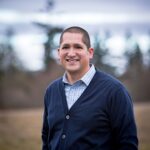 |
|
Shaun Foster has worked for PGE for over 15 years, holding a variety of roles, and currently is the manager of Transmission, Interconnection, & Contract Services. Shaun’s responsibilities include the administration of PGE’s Open Access Transmission Tariff, which includes both transmission and interconnection service, national and regional transmission policy advocacy, management of PGE’s relationship with regional transmission peers, as well as development and delivering PGE’s transmission development strategy. |
| Adam Schultz is the Manager of Regional Coordination for the California Independent System Operator, where he engages with utilities across the western United States to expand regional coordination in the power sector through expanding market solutions. Before joining the ISO, Adam was the Lead for the Electricity & Markets Policy Group at the Oregon Department of Energy. Previously he also managed the UC Davis Energy Institute, worked on renewable energy procurement at the California PUC, and served as the Wayne Morse Legal Fellow for U.S. Senator Ron Wyden. He has a B.A. in Political Science from Tufts University and a J.D. from the Benjamin Cardozo School of Law. |
|
Sustainable Ocean Energy Technology and Policy
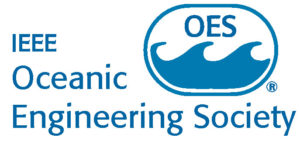 Brought to you by
Brought to you by
IEEE Oceanic Engineering Society
Date & Time: April 20, 3:30 pm
Venue: Multnomah Falls
This panel will focus on the various ways in which the ocean can be harnessed as a source of clean and sustainable energy, such as through the use of offshore wind, wave and tidal power. Panelists will discuss the current state of technology in this field, as well as the potential for future growth and development. They will also address the public policy and financial barriers to to fully realize the potential of ocean energy, such as the high costs of building and maintaining ocean energy systems and the mitigating potential environmental impacts. Overall, the discussion would aim to provide a comprehensive overview of the state of the field and the opportunities and challenges that lie ahead.
Panelists:
- Bryson Robertson, Associate Professor at Oregon State University and Director of the Pacific Marine Energy Center
- Varner Seaman, CPA
- Joseph H. Prudell, PE, Director Oregon Corporate Operations, C·Power
- Jonathan Z. Bird, Associate Professor, Portland State University
- Jason Sierman, Sr. Energy Policy Analyst, Oregon Department of Energy
Moderator:
 |
Jason Busch is Executive Director of the Pacific Ocean Energy Trust (POET), an organization that supports the responsible development of marine energy and decarbonization of the maritime sectors. Mr. Busch also is active in a number of organizations, including the Marine Energy Council, Offshore Wind California, and the Renewable Hydrogen Alliance.
Prior to joining Oregon Wave Energy Trust, Mr. Busch was an attorney specializing in land use, energy, and project development. |
Panelist Bios:
| Bryson Robertson, PhD is an Associate Professor at Oregon State University and Director of the Pacific Marine Energy Center. Dr. Robertson’s research and teaching interests include the wave mechanics, hydrodynamics of floating bodies and mooring systems, and renewable energy. Working with partners in industry and the US National Laboratories, he focuses on wave, tidal and offshore wind energy resource characteristics; the co-design and modeling of hydrodynamically active offshore wind and wave renewable technologies; and numerically integrating marine power within the emerging Blue Economy. His research utilizes field measurements, hydrodynamic multi-body numerical models, and physical prototype build/test. Prior to coming to OSU, he spent five years working at the University of Victoria and consulting for marine energy companies. In complementary research, Dr. Robertson also looks at the future of our global energy systems; the nexus of technology, climate change, policy, economics and society on the decarbonization of electrical systems; and the public trust requirements to transition power systems. His research has been funded by the DOE, Navy, the State of Oregon and National Science and Engineering Council of Canada. |
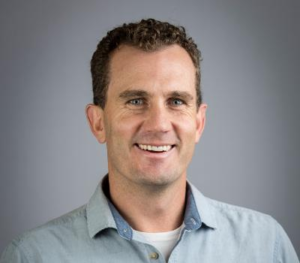 |
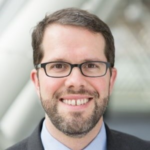 |
Varner Seaman, CPA Mr. Seaman has extensive experience in energy and utility policy. Varner consults with leading advocacy organizations focused on offshore wind development and improved regional governance of the western electric interconnect. In his roles with American Clean Power- California and Renewable Northwest Varner is one of the leading advocates on the west coast focused on the development of this new industry. He has testified in front of the California Coastal Commission, California Energy Commission, California Assembly and the Oregon Legislature and spoken at conferences on issues related to offshore wind on both the east and west coast. Prior work experience includes managing state government relations for Portland General Electric as well as EDP Renewables. |
|
Joseph H. Prudell, PE, Director Oregon Corporate Operations at C·Power in Corvallis, OR, and senior research and development engineer specializing in electrical systems and power generation. He has developed electrical system designs for CH2M Hill, control designs for NACCO Materials Handling Group, and worked for PGE Marking as a transmission engineer performing extensive studies on HV and HV DC transmission lines throughout the Pacific Northwest.
Joe was one of the founding engineers of C·Power while performing research at OSU specializing in wave energy. While at OSU he was the laboratory manager, worked with the late Dr. Alan Wallace, and helped create the Wallace Energy Systems and Renewables Facility (WESRF) in line with Dr. Wallace’s vision for wave energy research. His research at OSU in electrical engineering led to the design and construction of the permanent-magnet synchronous tubular linear generator used in the SeaBeav I and Blue-Ray L10 WEC prototypes, the first production of electrical power off the Oregon coast.
Joe has numerous patents and publications from 19 years of research in wave energy technologies, including topics on ultra-low speed generator designs, power electronics, power systems, and control technologies. He has prior U.S. Navy nuclear engineering service aboard fast attack submarines and is a licensed professional engineer and a member of IEEE and NSPE..
More information: https://www.linkedin.com/in/waveenergy/ |
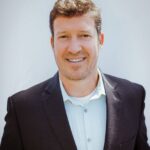 |
 |
Jonathan Z. Bird, PhD, Dr. Bird was recently awarded a 4-year Department of Energy research and development grant that involves supplying variable negative stiffness magnetics springs to AquaHarmonics Inc. for utilization in a wave energy converter. AquaHarmonic Inc will then be testing the wave energy converter at the new Department of Energy testing site (PacWave).
Dr. Bird received his M.S. and Ph.D. degrees in Electrical and Computer Engineering from the University of Wisconsin-Madison, he was a Senior Design Engineer with the General Motors Advanced Technology Center, Assistant then Associate Professor with the University of North Carolina at Charlotte. Since 2015 he has been an Associate Professor with the Portland State University, Portland, OR, USA. His primary research interests include magnetic geared electrical machines, electrodynamic wheel maglev technology and variable stiffness magnetic springs for renewable energy applications. Dr. Bird’s research has been primarily funded by the Department of Energy the National Science Foundation and NASA. He is an Associate Editor of the IEEE Transactions on Magnetics.
|
Jason Sierman is a Sr. Energy Policy Analyst with the Oregon Department of Energy. His areas of focus span a variety of power grid topics, such as utility power planning, transmission, storage, and offshore wind. Prior to his current role, he was an Energy Policy Analyst with the Department’s Siting Division that supports Oregon’s Energy Facility Siting Council. Jason has a B.S. in Civil & Environmental Engineering, an M.B.A., and a J.D. with a focus on Sustainable Environmental, Energy & Resources Law.
Maintaining Energy Resilience
Organized by Oregon Department of Energy
Date & Time: April 21, 10:30 am
Venue: Multnomah Falls
This panel will address why resiliency is becoming increasingly important in the context of the electricity system. While our economy and communities become increasingly reliant on electricity, climate change is creating unpredictable and extreme conditions that increase the risk of disruptive grid events. What strategies and technologies are available to help increase resiliency in the electricity system, and what are some of the major trade-offs, challenges, opportunities, and next steps associated with those strategies? This panel will discuss these issues and describe actions utilities and transmission operators are taking to increase resiliency in the electricity system.
Organizer & Moderator: Amy Schlusser, Oregon Department of Energy
Panelists:
- Molly Hatfield, Bonneville Power Administration (BPA)
- Greg Alderson, Portland General Electric (PGE)
- Jeni Hall, Energy Trust of Oregon
- Les Perkins, General Manager, Farmers Irrigation District
Moderator:
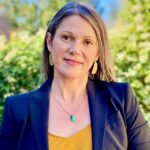 |
Amy Schlusser is senior clean energy policy analyst for the Oregon Department of Energy. Prior to joining the agency in October 2022, Amy worked as a staff attorney with the Green Energy Institute at Lewis & Clark Law School for more than nine years. She has extensive experience with a broad variety of legal and regulatory frameworks relating to renewable energy, climate change, and transportation. Amy received J.D. and LL.M. degrees from Lewis & Clark Law School’s Environmental, Natural Resources, and Energy Law program. She received her bachelor’s degree from Penn State University. In November 2021, Amy was appointed to the Oregon Environmental Quality Commission, the policy and rulemaking board for the Oregon Department of Environmental Quality. |
Bios:
| Greg Alderson is Senior Environmental Policy Manager at PGE, focused on state policy that will help PGE achieve Oregon’s HB 2021 electricity greenhouse gas reduction targets affordably and reliably in partnership with our customers, stakeholders, communities, and regulators. |
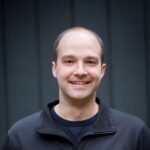 |
 |
Molly Hatfield is the Sustainability Program Manager at the Bonneville Power Administration. She leads Sustainability Office efforts to reduce the environmental impacts of BPA’s internal operations through strategic planning, targeted research and initiatives, and culture change. During her seven years at BPA, the agency has been recognized with 19 awards for outstanding sustainability performance by the Environmental Protection Agency, the Department of Energy, and others. Molly has been deeply involved in the sustainability field for over 15 years and maintains a strong commitment to promoting best practices throughout the region. She has an MSc in Environmental Change and Management from the University of Oxford. |
| Jeni Hall is a Program Manager at Energy Trust of Oregon. Her focus is working with Oregon communities and utility partners on projects that balance customer benefits and energy resilience with the future of the electric grid. She is responsible for the leading the organization’s strategy on how energy efficiency and renewable energy can support community energy resilience and create grid interactive efficient buildings that are durable and high performing grid assets. Prior to joining Energy Trust Jeni served as co-owner and director of operations for Synchro Solar, a residential and small commercial solar installer based in Portland. She holds a graduate degree in Aerospace Engineering and before following her passion into working with solar was employed by Sikorsky Aircraft to evaluate the handling qualities of Blackhawk helicopters. |
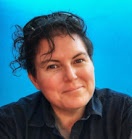 |
 |
Les Perkins has a degree in Biology from Lewis and Clark College, has worked as a microbiologist, co-founded FCA, an energy and water focused non-profit, and currently manages Farmers Irrigation District in Hood River, OR. Farmers Irrigation District owns and operates two LIHI certified hydropower facilities, providing about 9% of Hood River County’s annual energy demand. Les is the Chair of the Community Renewable Energy Association, serves on the Energy Trust of Oregon Renewable Energy Advisory Council, is an Executive Board member for the Hood River Energy Council, and was appointed to serve on the Community Renewable Energy Program Advisory Committee. Les has also served as a Hood River County Commissioner for over 20 years, focusing on energy, water, and forestry. |
Implementing a Sustainable Future for Aviation: An Ecosystem Approach
Organized by the American Institute of Aeronautics and Astronautics (AIAA)
Date & Time: April 22, 10:00 am
Venue: Multnomah Falls
Sustainable aviation is a cross-industry priority requiring cooperation across aerospace disciplines, including both classical aeronautics science and engineering, as well as adjacent fields such as chemical engineering and transportation planning, to determine the priorities and implement a vision which can be both scaled and maintained. In this panel, organized by the American Institute of Aeronautics and Astronautics (AIAA), speakers will share their perspectives on sustainable aviation developments in policy, practice, and implementation. Panel discussion will emphasize an inclusive ecosystem approach that attempts to embrace a comprehensive view of all technology elements—vehicles, fuels, infrastructure—necessary for a sustainable future for aviation.
Panelists:
- Carol Sim, Assistant Director of the Aviation Sustainability Center (ASCENT) at Washington State University
- Matt Orr, Associate Technical Fellow in Product Development at The Boeing Company
Moderator:
Ashira Beutler-Greene, Senior Manager, Content and Product Strategy at the American Institute of Aeronautics and Astronautics (AIAA)
Bios:
 |
Ashira Beutler-Greene, Ph.D. is responsible for the management of initiatives related to sustainable aviation and advanced air mobility at the American Institute of Aeronautics and Astronautics (AIAA). She enjoys providing opportunities for cross-industry stakeholders to share their perspectives on common areas of concern. Prior to her role at AIAA, she managed educational media programming for the Annual Meeting of the American Association for the Advancement of Science. Ashira holds degrees from University College London, Carnegie Mellon University, and Wellesley College.
|
| Ms. Carol Sim is an Assistant Director in the Washington State University Office of National Laboratory Partnerships and supports the FAA Center of Excellence for Alternative Jet Fuel and the Environment (commonly known as ASCENT) – an aviation-based research organization providing science-based solutions for many of aviation’s environmental challenges. Carol also facilitates the Washington Sustainable Aviation Biofuels Work Group- a diverse group of public and private stakeholders – working to promote sustainable aviation fuels as a productive industry in Washington. Prior to joining WSU, Carol was the Director of Environmental Affairs for Alaska Airlines. |
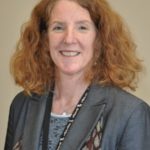 |
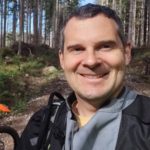 |
Dr. Matthew Orr is an Associate Technical Fellow, Boeing Commercial Airplanes Product Development, with over 20 years of experience in aircraft design. Matt’s career has been focused on improving fuel efficiency and reducing the environmental footprint of commercial aviation. He is an American Institute for Aeronautics and Astronautics (AIAA) Associate Fellow and a member of the Aircraft Design Technical Committee, Student Activities Committee, and the Sustainable Aviation Task Force within the AIAA. |
 Brought to you by
Brought to you by



















